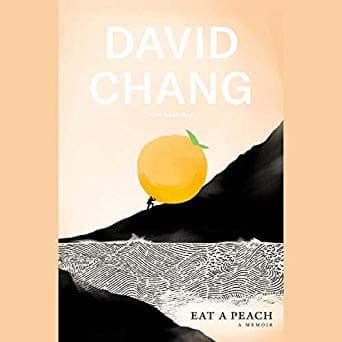
Book Review Summary: Eat a Peach
Introduction
"Eat a Peach" is a memoir by renowned chef and restaurateur David Chang, chronicling his journey from a struggling noodle shop owner to a culinary mogul. The book offers a candid and heartfelt account of Chang's struggles, triumphs, and the lessons he learned along the way. With its combination of personal storytelling and insights into the food industry, "Eat a Peach" has garnered widespread acclaim from readers. In this article, we will delve into the book's content, analyze common opinions, and discuss the reasons for both recommending and not recommending this captivating memoir.
About David Chang
David Chang is the founder and owner of the Momofuku restaurant group, which includes locations in New York, Toronto, and Washington, DC. He is also a renowned chef, television personality, and podcast host. Chang's culinary journey began with the opening of Momofuku in Manhattan's East Village in 2004. Despite initial skepticism, his unpretentious approach to food and commitment to quality earned him a loyal following and numerous accolades. Over the years, Chang has expanded his empire, opening new restaurants, launching a bakery, and even hosting his own Netflix show and podcast.
Analysis of Views
-
Honesty and vulnerability: Many readers praise Chang's honesty and vulnerability throughout the memoir. They appreciate his willingness to share his struggles with mental health issues, such as bipolar disorder, and his openness about his personal life. This authenticity resonates with readers and adds depth to Chang's story.
-
Inspirational journey: "Eat a Peach" is often described as an inspiring and motivational book. Readers appreciate Chang's tenacity, passion, and ability to overcome obstacles. His story serves as a testament to the power of perseverance and the importance of staying true to oneself.
-
Culinary insights: Foodies and aspiring chefs alike find value in Chang's insights into the food industry. His candid discussions about the challenges of running a restaurant, the importance of education, and the role of mentorship provide valuable insights for those interested in pursuing a career in the culinary world.
-
Mental health representation: The book receives praise for its exploration of mental health issues, particularly bipolar disorder. Chang's openness about his own struggles with mental illness adds a layer of depth to his story and provides comfort to readers who may be going through similar experiences.
-
Engaging storytelling: Readers appreciate Chang's storytelling abilities, finding his narrative engaging and compelling. His ability to convey his experiences with humor, vulnerability, and introspection keeps readers invested in his journey from beginning to end.
Reasons for Recommendation
-
Honest and authentic: "Eat a Peach" is recommended for its authenticity and honesty. Readers appreciate Chang's willingness to share his struggles and vulnerabilities, which adds depth to his story and resonates with them on a personal level.
-
Inspirational message: The book's inspiring message of perseverance and resilience resonates with many readers. Chang's journey serves as an inspiration to those facing their own challenges and reminds them that success can be achieved through hard work and determination.
-
Culinary insights: For food enthusiasts, "Eat a Peach" offers valuable insights into the food industry. Chang's candid discussions about education, mentorship, and the challenges of running a restaurant provide valuable information for aspiring chefs or those interested in the culinary world.
Reasons for Not Recommendation
-
Disjointed structure: Some readers find the book's structure disjointed and uneven. The second half of the memoir, which focuses on personal, societal, and restaurant shortcomings, fails to maintain the momentum of the first half. This inconsistency detracts from the overall reading experience for some readers.
-
Limited focus: A few readers feel that the book could have benefited from more focus on Chang's culinary journey and less on personal issues or societal commentary. They prefer books that are more anecdotal and centered around the author's experiences in the kitchen.
Conclusion
"Eat a Peach" by David Chang is a captivating memoir that offers readers a glimpse into the life of one of the most influential chefs of our time. With its honest portrayal of Chang's struggles, triumphs, and personal growth, this book resonates with readers on multiple levels. While some may find the disjointed structure or limited focus detracting, overall, "Eat a Peach" is recommended for its inspirational message, culinary insights, and engaging storytelling. Whether you are a food enthusiast or simply looking for a powerful memoir that explores themes of resilience and personal growth, "Eat a Peach" is worth considering.